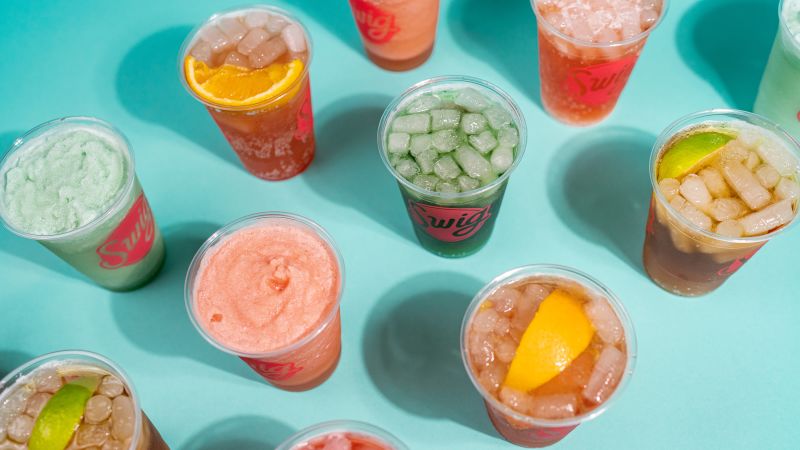Dirty soda, a non-alcoholic drink mixed with creams, flavored syrups, or fruit, is gaining mainstream popularity, especially in the Mountain West where it is ingrained in Mormon culture. The sugary drinks are becoming more popular thanks to social media, mommy influencers, and reality TV shows like “The Real Housewives of Salt Lake City.” However, critics point out the high sugar content and empty calories in dirty sodas, cautioning against consuming multiple sugary drinks a day to avoid health risks like obesity, heart disease, and type 2 diabetes.
The rapid rise in the popularity of dirty soda is attributed to people using the drinks as indulgent treats. The trend is expanding beyond the Mormon corridor in the Western United States, with soda shops like Swig planning on opening locations in multiple states across the country. These shops offer a variety of customization options for soda enthusiasts, similar to the personalized experience that coffee shop chains like Starbucks provide. The variety of drink options and the ability to express individual preferences through drink customization attract consumers to soda shops.
While dirty sodas are popular in the United States, the concept of mixing dairy with soda is not new globally, with similar drinks like doodh soda in South Asia and doogh in the Middle East. American ice cream floats also reflect the tradition of mixing ice cream with soda in the 20th century. Soft drink manufacturers have also experimented with milk and soda combinations, but it is the drive-through soda shops that have brought these concoctions to the forefront of consumer consciousness through a wide range of flavors and customizable options.
Soda shops like Swig target a demographic of primarily female and younger consumers, offering a variety of drink options and emphasizing convenience with drive-through locations. The shops have thrived on social media platforms, attracting organic features and endorsements from influencers, driving their popularity further. As the popularity of dirty sodas continues to rise, traditional players in the beverage industry may start offering similar customized options to attract consumers who seek a personalized experience in their drink choices.
Despite the growing popularity of dirty soda, the challenge for soda shops will be to stay relevant and maintain consumer interest, especially as social media trends evolve. Alternative competitors, such as freestyle machines that allow for customization, could enter the market and provide a similar experience to soda shops. While dirty soda shops like Swig have expanded to locations outside of the Mormon corridor, it may take time for the trend to become a cultural staple in regions like the Northeast, where coffee and other beverages have a more established presence.


